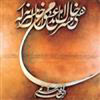
Salamun alaikum, Please tell me whether the following hadith is authentic or not. The Infallible was asked: "Do the believing Jinns enter Paradise?" The Imam answered: "No, God has gardens between Paradise and Hell where they and corrupt Shiites shall dwell. (Footnote: Safinatul Behar, Muhaddith Qommi, vol.1, pg. 186)
Concise answer
There are many verses in the Holy Quran which indicate that the Jinns are also duty-bound like humans and they are held responsible for their deeds; and they receive the rewards for their deeds whatsoever.[1]
Addressing mankind and Jinn in Sura Al-Rahman of the Quran, the Lord of the Worlds says, ""وَ لِمَنْ خافَ مَقامَ رَبِّهِ جَنَّتان" [And for him who fears to stand before his Lord are two gardens.[2]] God has not considered these two gardens to be only for mankind.
Imam Baqir (a.s.) has been reported as having said: God revealed to Adam that 'I did not create Jinn and Ins (humans) except for worship and created Paradise for those who worship and obey Me and follow My prophets. And I created Hell for those who disobey Me and does not follow My prophets and I do not care (if such people are doomed to punishment in Hell).[3]
It can be inferred from the above that Paradise is also the abode of the good-doing Jinns. However, the tradition which has been narrated in Qommi's commentary book (Tafsir)[4] and then in the others' books and which say that Jinns live with corrupt Shiites in the gardens between Paradise and Hell are not reliable and trustworthy owing to many reasons:
1. The tradition is in contradiction with many Quranic verses and also traditions.
2. It has been said that an "Aalim" (religious scholar) has narrated this hadith and it is not known as to who that Aalim is. Therefore, the reference provided with the narration is inconspicuous and doubtable.
3. In addition, this narration is mursal which means that the narrators who have passed on this hadith have been omitted from the chain of transmission. Hence, it is weak and cannot contradict the general religious standards.
This question does not have a detailed answer.
[1] - Al-An'am, 130, Al-A'araf: 38, Al-Ahqaf, 29 - 31; Jinn, 14 - 16, Al-Zariyat, 56.
[2] - Al-Rahman, 46.
[3] - Kulayni, Muhammad bin Y'aqub, Al-Kafi, vol.2, pg. 8, Dar al-Kutub al-Islamiyah, Tehran 1986.
[4] - Ali bin Ibrahim, Tafsir Qommi, vol.2, pg. 300, Dar al-Kutub Institute, Qom, 1404.
source : www.islamquest.net













